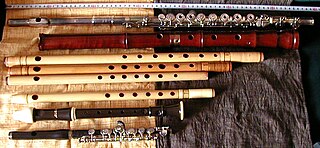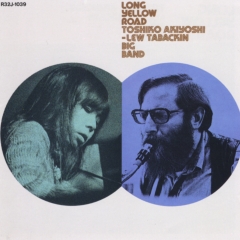
Long Yellow Road is the second album by the Toshiko Akiyoshi – Lew Tabackin Big Band. It was named Best Jazz Album of the year by Stereo Review magazine. In 1976, the album received a Grammy Award nomination for Best Jazz Performance by a Big Band.
Steve McCall was an American jazz drummer.
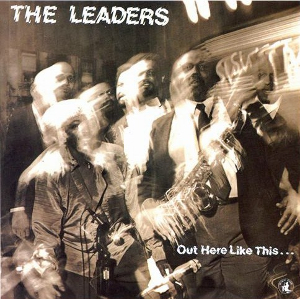
Out Here Like This is a jazz album released in 1987. It was the second album by the all-star jazz group The Leaders and the first to be released on the Italian Black Saint label. The album features performances by Lester Bowie, Chico Freeman, Arthur Blythe, Cecil McBee, Kirk Lightsey and Don Moye.
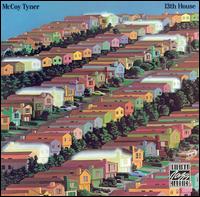
13th House is a 1981 album by jazz pianist McCoy Tyner released on the Milestone label. It was recorded in October 1980 and features performances by Tyner with a big band that includes Joe Ford, Hubert Laws, Ricky Ford, Slide Hampton, Ron Carter, Oscar Brashear and Charles Sullivan.

Mudfoot is the debut album by the all-star jazz group The Leaders released on the Black Hawk label in 1986. The album features performances by Lester Bowie, Chico Freeman, Arthur Blythe, Cecil McBee, Kirk Lightsey and Don Moye.

Tin Can Alley is a live album by Jack DeJohnette's Special Edition featuring Chico Freeman, John Purcell and Peter Warren recorded in 1980 and released on the ECM label in 1981.

Inflation Blues is an album by Jack DeJohnette's Special Edition featuring Chico Freeman, John Purcell, and Rufus Reid, with Baikida Carroll added on four tracks, recorded in 1982 and released on the ECM label in 1983. The Allmusic review by Scott Yanow states, "this is a particularly strong outing by the 1982 edition of the group... it is not surprising that the music is adventurous yet quite coherent, with the solo and group statements being both spontaneous and logical. Recommended".

Kings Of Mali is a post-bop/avant-garde jazz lp by Chico Freeman on India Navigation Records IN 1035 in September 1977 and released in 1978.

Spirit Sensitive is a hard-bop jazz album by Chico Freeman on India Navigation Records IN 1045.
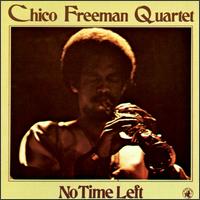
No Time Left is an album by American jazz saxophonist Chico Freeman recorded in 1979 for the Italian Black Saint label.
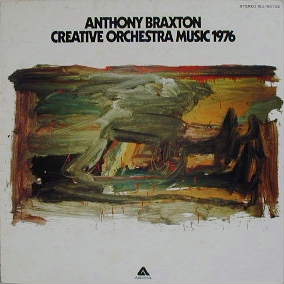
Creative Orchestra Music 1976 is an album by American jazz saxophonist and composer Anthony Braxton recorded in 1976 and released on the Arista label. The album was subsequently included on The Complete Arista Recordings of Anthony Braxton released by Mosaic Records in 2008.

Peaceful Heart, Gentle Spirit is an album by American jazz saxophonist Chico Freeman recorded in 1980 and released on the Contemporary label.
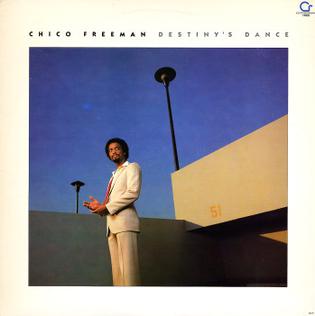
Destiny's Dance is an album by American jazz saxophonist Chico Freeman recorded in 1981 and released on the Contemporary label.

Beyond the Rain is an album by American jazz saxophonist Chico Freeman recorded in 1977 and released on the Contemporary label.
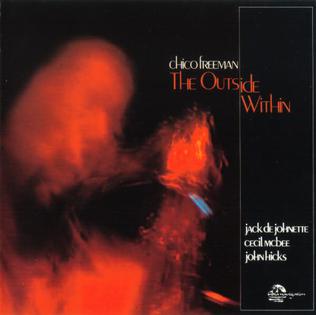
The Outside Within is an album by American jazz saxophonist Chico Freeman recorded in 1978 and released on the India Navigation label.

Alternate Spaces is an album led by bassist Cecil McBee recorded in 1979 and first released on the India Navigation label.

Music from the Source is a live album by bassist Cecil McBee's Sextet recorded at Sweet Basil in 1977 and released on the Enja label.
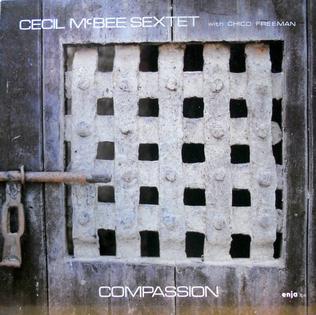
Compassion is a live album by bassist Cecil McBee's Sextet recorded at Sweet Basil in 1977 and released on the Enja label.
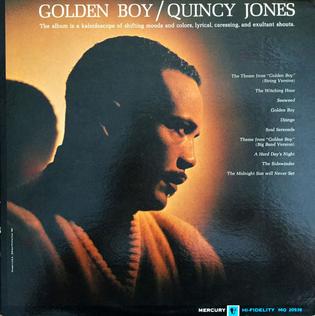
Golden Boy is an album by Quincy Jones which was released by Mercury in 1964. The album includes three versions of the theme from the musical Golden Boy with three original compositions and jazz versions of pop hits.




